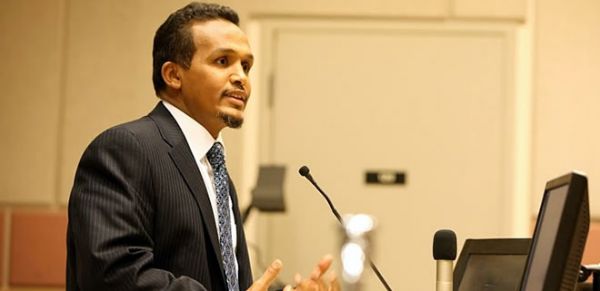
The worst thing that could happen to Somalia at this
critical juncture—in its recovery from two decades
of bloodshed and chaos— is to disrupt the momentum
of security improvement and to derail the
reformation process lead by Prime Minister Mohamed
Abdullahi Mohamed and his cabinet. And that is
exactly what the Kampala Accord has inadvertently
done.
But, who would have ever thought that the torpedo
factor would come in the form of an accord, its
inadvertent nature notwithstanding!
The Kampala Accord is the byproduct of the
International Contact Group for Somalia’s 19th
meeting held in Kampala, Uganda. On one hand, the
accord endorses a one year extension to all the
Transitional Federal Institutions and endorses the
postponement of elections from this August to August
2012; on the other hand, it forces the Prime
Minister and his government out. According to the
accord, the Prime Minister would resign within 30
days and the President would select a new Prime
Minster.
This portion of the accord is what has caused
profound public outrage in Somalia and in the
Diaspora as well as in refugee camps in Kenya.
Immediately after the controversial accord became
public, thousands of civilians from all walks of
life and hundreds of members of the armed forces
took their outrage to the streets. While, by and
large, the protests were peaceful, some resorted to
throwing stones at the hospitality compounds where
some parliament members were residing, thus causing
clashes between the protesters and the resident
security that ultimately resulted the tragic death
of some protesters.
So, if the accord is not in accordance with the will
of the people, who does it benefit?
While the accord was not deliberately intended for
that purpose, indeed there are certain
beneficiaries.
First: The anti-reform agents and anarchists. This
group includes a network of powerful profiteers and
corrupt politicians who became the privileged few in
the past two decades.
Second: Second: Al-Shabaab, who, after loosing much
of its territorial control in Mogadishu and in
various regions and lost one of its top foreign
leaders, Fazul Abdullah Mohammed, found an
opportunity to exploit the breakdown of the security
apparatus resulting from the demonstrations and a
number of the soldiers leaving key posts to protest
the accord. In the past several days, Al-Shabaab
carried out a suicide bombing operation in which
they assassinated the Interior Minister Abdishakur
Sheikh Hassan; and another one intended to wreak
havoc at the sea port which is the Transitional
Federal Government’s main source of revenue. This
latter operation has killed 1 person and injured
more.
Third: The so-called Nairobi Mafia consisting of
certain corrupted individuals, groups, NGOs, and
institutions that control and exploit hundreds of
millions of dollars donated to Somalia every year
without any accountability.
Prime Minister Mohamed’s government demanded
transparency per the actual percentage of those
monies being spent on Somalia. Furthermore, he
demanded that all UN agencies and NGOs assigned to
work on Somali humanitarian, political, and
development issues to set up their respective shops
in Mogadishu or in other regions within Somalia.
Fourth: Certain elements within the international
community who relentlessly engage in overt and
covert campaigns to shape a Somalia that is
comforting to their myopic strategic interests.
Fifth: The Speaker of the Parliament, who only a
week earlier—though without any constitutional
authority or a mandate from the parliament—was
spearheading a relentless political campaign to
pressure the government into adding a few of his
handpicked cronies to the current cabinet. The
accord would dissolve the government that he was
openly hostile to, and would afford him the
opportunity to influence the selection process of
the new government.
Sixth: Sixth: The President. The accord afforded him
an opportunity to shed off the growing allegations
of being an impediment to the peace process, and to
extend an olive branch to the international
community for boycotting the Nairobi Consultative
Meeting.
Within this backdrop, the Council Ministers met in
Mogadishu on Saturday June 11, 2011 and decided to
endorse the profound public sentiments expressed in
the streets of Mogadishu, and urged the Prime
Minister not to resign. They sent the Kampala Accord
to the Parliament for ratification, and in the
process requested a call for a vote of confidence on
the Prime Minister’s performance.
Meanwhile, if accords are to be ranked based on the
conflicts that they resolve and the hope that they
inspire, the Kampala accord fails miserably.
While the will of the people is considered the
legitimate source of authority of any democratic
government; in Somalia, political expediency and
symbolism driven by external and internal forces
seem to define, award and impose authority.
The ICG, and by extension the international
community—the very entities recognized to defend the
will of the people—are ironically lending their
unequivocal support to an accord that runs in a
collision course with the will of the Somali people.
The political pulse of the nation, gauged by the
latest popular uprising, asserts in no uncertain
terms the public outcry that ‘enough is enough’.
----------------------------------------------------------------------------------------------------------
Abukar Arman is Somalia’s Special Envoy to the
United States.

